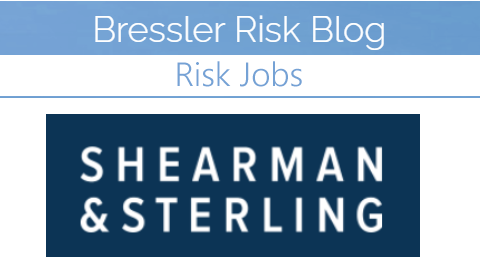Consulting Conflicts — Much Ado About McKinsey Opioid Allegations
Posted on
“Working for both opioid maker and FDA wasn’t conflict, McKinsey tells committee” —
- “McKinsey & Co managing partner Bob Sternfels told a congressional committee Wednesday that his consulting firm did not have a conflict of interest when it gave advice both to Oxycontin manufacturer Purdue Pharma LP and the government agency charged with regulating opioid sales.”
- “McKinsey gave consulting advice to both Purdue and the Food and Drug Administration from 2008 to 2019, and 22 of its consultants worked for both clients, according to a report published by the House Oversight Committee, which hosted the hearing. During that period, McKinsey offered to ‘turbocharge’ Purdue’s opioid sales while also working with the FDA division overseeing the development and marketing of drugs.”
- “That work did not create a conflict because McKinsey advised the FDA on topics such as technology upgrades and organizational efficiency, Sternfels said.”
- “That answer did not satisfy lawmakers, who said McKinsey failed to inform the FDA that its consultants continued to give advice to Purdue.”
- “Democratic Representative Katie Porter of California pointed out the omission allowed McKinsey to avoid a government review of potential conflicts of interest.”
- “‘Your scheme worked really well,’ Porter said. ‘McKinsey got contracts, Purdue got rich, and America got addicted.'”
- “An FDA official said Monday in a separate congressional hearing that it did not seek McKinsey’s advice about drug safety, and the agency did not know about McKinsey’s work with Purdue until 2021.”
- “The Food and Drug Administration (FDA) will not be issuing new contracts to the consulting firm McKinsey and Co. amid an investigation into potential conflicts of interest, a top official has confirmed.”
- “‘The Center for Drugs currently does not have a contract with McKinsey and across FDA,’ said Patrizia Cavazzoni, director of the Center for Drug Evaluation and Research for the FDA. ‘We anticipate that further contracts will not be issued pending the outcome of the investigations.'”
- “In an April 13 report (pdf), committee members alleged that McKinsey had ‘failed to disclose its serious, longstanding conflicts of interest to FDA, potentially violating contract requirements and federal law.'”
- “In one case detailed in the report, at least four McKinsey consultants were allegedly working for the FDA on improving drug safety while also working for the privately held U.S. pharmaceutical company and opioid manufacturer, Purdue Pharma.”
- “The committee said that Purdue Pharma, ‘explicitly tasked McKinsey with providing advice on how to influence the regulatory decisions of the U.S. Food and Drug Administration (FDA), another McKinsey client,’ according to the report.”
- “‘As I indicated earlier, we follow contracting regulations that apply across the entire U.S. government, including other agencies. And we rely on contractors to follow those rules and to inform us of any conflicts of interest,’ Cavazzoni responded while dismissing suggestions that the FDA should change its rules regarding conflicts of interest.”
“Oversight Committee Grills McKinsey & Company on Its Role in Nation’s Opioid Epidemic” —
- “When asked by Chairwoman Maloney whether her office’s investigation of McKinsey found the firm had advised Purdue to undermine federal drug safety measures, Attorney General Healey responded: ‘Absolutely. … McKinsey was actively coaching Purdue on how to band together with other opioid companies on how to fight FDA safety requirements while also working at the agency.'”
- “Rep. Porter questioned Mr. Sternfels on McKinsey’s failure to disclose conflicts of interest to the FDA, asking, ‘who made you the conflict-of-interest czar for the federal government?’ After Mr. Sternfels asserted that McKinsey ‘made clear in multiple instances that the individuals involved had experience in both pharmaceuticals and opioids,’ Rep. Porter responded: ‘They didn’t have experience, they were the identical humans working for both [FDA and Purdue] at the same time. Did you tell the FDA, did you make these disclosures, and then allow the government to decide whether there was a conflict of interest?’ Sternfels was unable to say whether McKinsey had made any specific disclosures.”
- “Asked by Congresswoman Norton whether staffing the same individuals on contracts at both FDA and opioid manufacturers was concerning from a conflicts of interest perspective, Dean Tillipman [Jessica Tillipman, Assistant Dean for Government Procurement Law Studies at the George Washington University Law School.] agreed that ‘given the nature of the work, when there is the potential for overlap, the work could raise significant red flags’ about the presence of an organizational conflict of interest.”
In a statement, McKinsy noted: “Since we stopped advising clients on opioid-related business in 2019, we have continued to improve our policies around governance and client selection. That year, we implemented a new client selection policy governing which clients we serve and on what topics.” For more see: “McKinsey Client Selection Policy” —
- “In recent years, we have strengthened our governance and compliance processes as part of our ambition to lead our industry.”
- “Among other enhancements, we implemented a new Client Service Policy and increased the influence and authority of the global committee that reviews high-risk engagements. We have spent more than $300 million over the past several years on strengthening our risk-management teams and capabilities, and we have implemented new trainings and accountability mechanisms to ensure that our colleagues understand and adhere to our policies. Each of these enhancements applies globally.”
- “Our Client Service Policy requires partners to systematically assess client projects across five interrelated dimensions: Country, Institution, Topic, Individual, and Operational considerations. Referred to as “CITIO,” this framework is embedded in the way we assess risk for all our client work.”
- “Among other criteria, the policy requires us to consider the unintended consequences of any proposed work, including potential negative impact on vulnerable populations. If a client or proposed project falls short of our standards, we will not do the work. This policy applies globally, across all sectors, whether work is paid or unpaid.”
- “Our policies forbid an employee who has acquired confidential information about a client from serving a competitor in a competitively sensitive engagement. That restriction lasts as long as the information has significant competitive value.”
- “We follow additional conflict-management protocols in our work with the public sector. In addition to managing any potential staffing conflicts, we are subject to our government clients’ conflict of interest requirements and review potential conflicts—both actual and potential—accordingly.”









